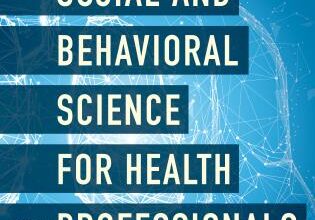what courses are needed for forensic science?
Forensic science is an exciting field that combines scientific knowledge with the investigation of crime. It plays a critical role in the criminal justice system, helping to solve cases by analyzing physical evidence. For those looking to embark on a career in forensic science, understanding the educational path is crucial. This article outlines the essential courses that provide the groundwork and specialized knowledge needed for a career in forensic science.
Foundational Courses Essential Starting Points
At the core of forensic science education are foundational courses that equip students with the basic scientific principles necessary for all further forensic investigation.
Biology Importance in Forensic Science
Biology courses cover everything from cellular structures to complex ecosystems. In forensic science, biology helps professionals understand bodily fluids, DNA, and other biological samples that can link a suspect to a crime scene.
Chemistry Analytical Skills and Techniques
Chemistry is crucial for forensics. It involves the analysis of chemical substances and materials that can serve as evidence, such as drugs, poisons, and trace materials from explosives or gunshot residues.
Specialized Courses Building Expertise
As forensic science is a broad field, specialized courses allow students to focus on particular areas of interest or required expertise.
Forensic Biology DNA Analysis and Beyond
This course dives deeper into the genetics and molecular techniques used in the identification of individuals from samples. It’s vital for cases involving human remains or bodily fluids.
Forensic Chemistry Toxicology and Substance Identification
Students learn to identify and quantify substances, understanding their impact on the human body, which is essential for investigating cases of poisoning and drug use.
Forensic Psychology Understanding Criminal Behavior
This course explores the psychological aspects of criminal behavior, helping forensic scientists understand motives and create profiles of suspects.
Practical Skills Development Applied Learning
Forensic science is not just about theoretical knowledge; practical skills are essential.
Crime Scene Investigation Techniques and Protocols
Courses in crime scene investigation teach students how to properly secure, survey, and collect evidence from a crime scene in a way that it remains admissible in court.
Legal Aspects of Forensics Law and Ethics
Understanding the legal and ethical considerations in forensic science is critical for any practitioner. This includes learning about the rights of the accused and ensuring the integrity of evidence.
Advanced Courses Further Specialization
For those looking to specialize further, advanced courses provide deeper knowledge and more refined skills.
Digital Forensics Cybercrime Investigation
This course focuses on the recovery and investigation of material found in digital devices, crucial in today’s tech-driven world.
Forensic Anthropology Human Remains Analysis
Students learn about the recovery and analysis of human remains, focusing on identifying victims and understanding the circumstances of their death.
Conclusion
Forensic science offers a challenging yet rewarding career path. The courses outlined above provide a comprehensive foundation for anyone interested in entering this field. As technology and methods evolve, ongoing education and specialization will become increasingly important.
FAQs
- What is the best degree for forensic science? A degree in forensic science itself is ideal, but degrees in biology, chemistry, or even criminal justice are also beneficial.
- How long does it take to become a forensic scientist? Typically, it requires at least a bachelor’s degree, which takes four years to complete. Additional certification or training can extend this timeline.
- Are there online courses available for forensic science? Yes, many institutions offer online courses and even full degrees in forensic science.
- What skills are most important for a forensic scientist? Analytical skills, attention to detail, and a strong understanding of scientific and legal practices are crucial.
- Can I specialize in more than one area of forensic science? Yes, some forensic scientists hold multiple specializations, especially in areas like digital forensics and forensic psychology.






